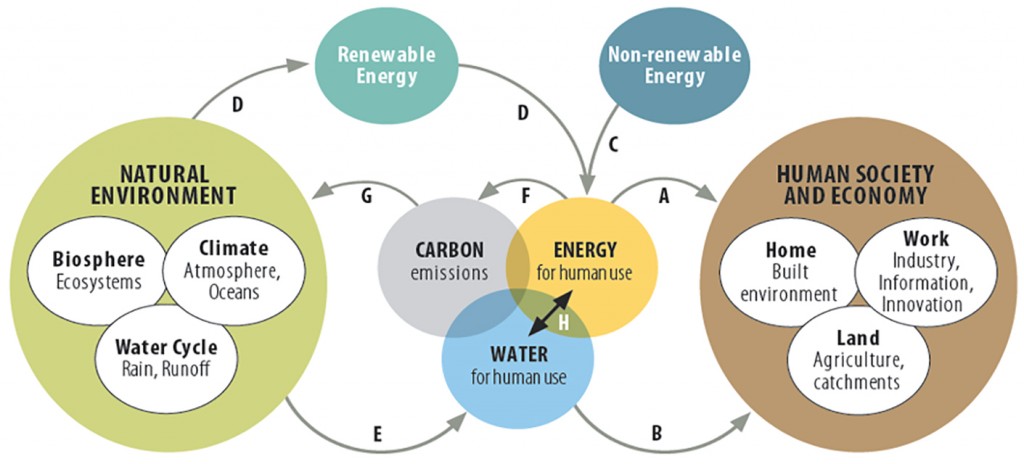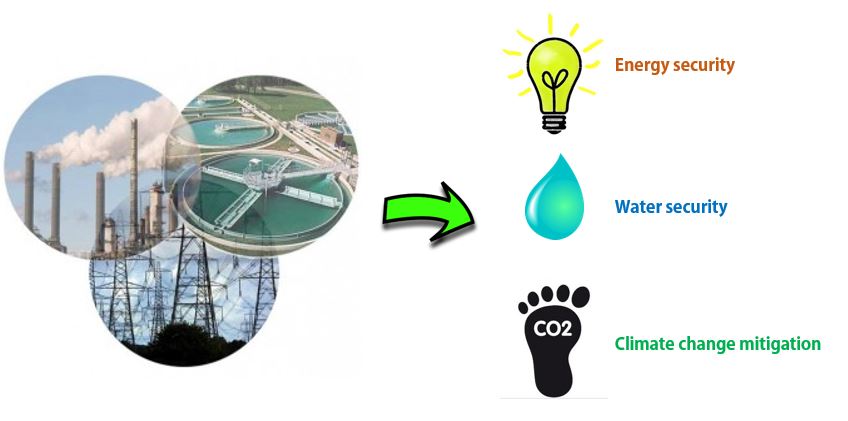Water Energy Carbon Nexus (WEC-Nexus)Â – The water-energy-carbon nexus directly influences three key contemporary policy objectives facing policy makers, namely, climate change mitigation, energy security, and water security. Past research and our understanding of drivers, processes and implications of this nexus is very limited for cities while cities are key places to analyse this nexus given the speed and scale of urbanization in Asia. Decision makers need an integrated knowledge as well as considerations to up-stream implications in low carbon development pathways.
Energy, Carbon (WEC) are central to interaction between natural & social environment and economy (Source: PMSEIC (2010). Challenges of Energy-Water-Carbon intersections. Prime Minister’s science, Engineering and Innovation Council, Canberra, Australia)
Energy, carbon and water are central to the interaction between the natural environment (left) and human society and economy (right). Energy and water are both vital for all human activities (A,B). Energy for human use is derived primarily from fossil fuels and other non-renewable sources including nuclear energy (C) and from renewable sources (D). Water for human use is dependent on the natural water cycle (E). Fossil-fuel-derived energy consumption leads to the buildup of carbon dioxide and other greenhouse gases in the atmosphere (F), which is changing the earth’s climate (G) and influencing water availability, ecosystem function and agricultural productivity (E,B). There are also interactions between water supply and energy because energy systems use water and water systems use energy (H).
Water, Energy and Carbon Nexus influence three important issues: Energy security, Water Security and Climate change mitigation.Â
Read more on policy brief of water-energy-carbon nexus in cities (Click here for download link)








 1
1 2
2 3
3 4
4 5
5 6
6